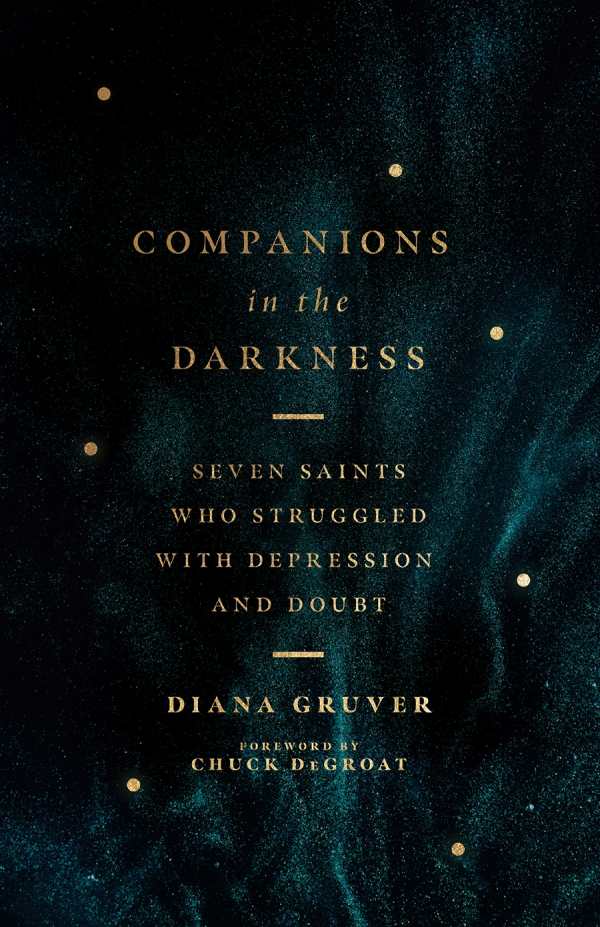Companions in the Darkness
Seven Saints Who Struggled with Depression and Doubt
The seven mini-biographies of Diana Gruver’s Companions in the Darkness cover historical Christians, from Martin Luther to Martin Luther King, Jr., who wrestled with their mental health.
Gruver’s depression was diagnosed during her senior year of college, and antidepressants and her Christian faith became twin coping strategies, along with the examples of the seven Christians from whose stories she took heart. They include Hannah Allen, whose husband was lost at sea in the seventeenth century, and David Brainerd, a discouraged missionary to Native Americans during the First Great Awakening. Poet and hymn writer William Cowper outlived many of his family members and was bullied at school, while nineteenth-century preacher Charles Spurgeon suffered from guilt and gout, and Mother Teresa felt abandoned by God for half a century. Still, Gruver notes, each of these respected religious figures achieved great things for God in spite of their despair.
Intense scenes recreate pivotal moments in the subjects’ lives, including the 1856 Royal Surrey Gardens Music Hall disaster: during a crowded service led by Spurgeon, someone yelled “Fire!”, and the resulting stampede led to seven fatalities. But Gruver notes that most of her subjects never received a clinical diagnosis of mental illness. Allen and Cowper made suicide attempts; Cowper spent time in a mental asylum. In some cases, though, the figures’ melancholy was not widely known, but surfaced in journals and letters. The text makes good use of such documents—some of them published posthumously, like Allen’s autobiography.
Throughout, Gruver makes space for theological evolution, acknowledging that faith is no panacea: for many, mental illness is a lifelong struggle. From her historical antecedents, Gruver draws lessons of finding joy in small things and believing that faith goes beyond one’s emotions.
The hopeful profiles of Companions in the Darkness suggest that “God can still use” Christians, even during their depression.
Reviewed by
Rebecca Foster
Disclosure: This article is not an endorsement, but a review. The publisher of this book provided free copies of the book to have their book reviewed by a professional reviewer. No fee was paid by the publisher for this review. Foreword Reviews only recommends books that we love. Foreword Magazine, Inc. is disclosing this in accordance with the Federal Trade Commission’s 16 CFR, Part 255.

